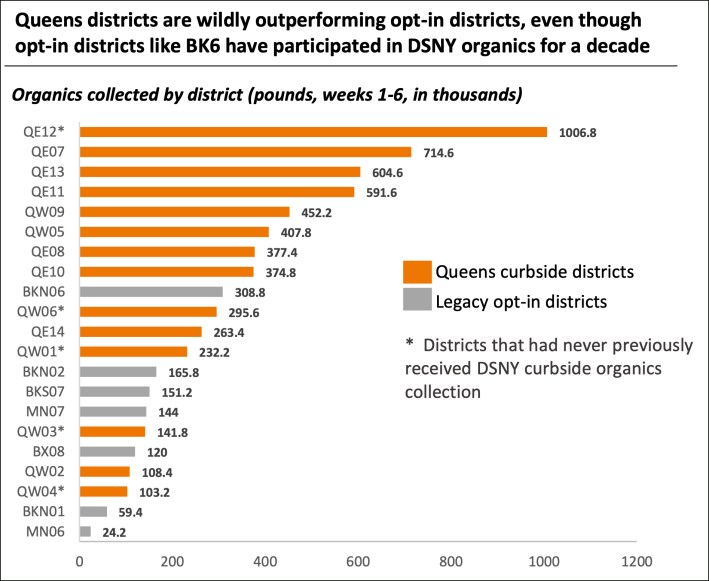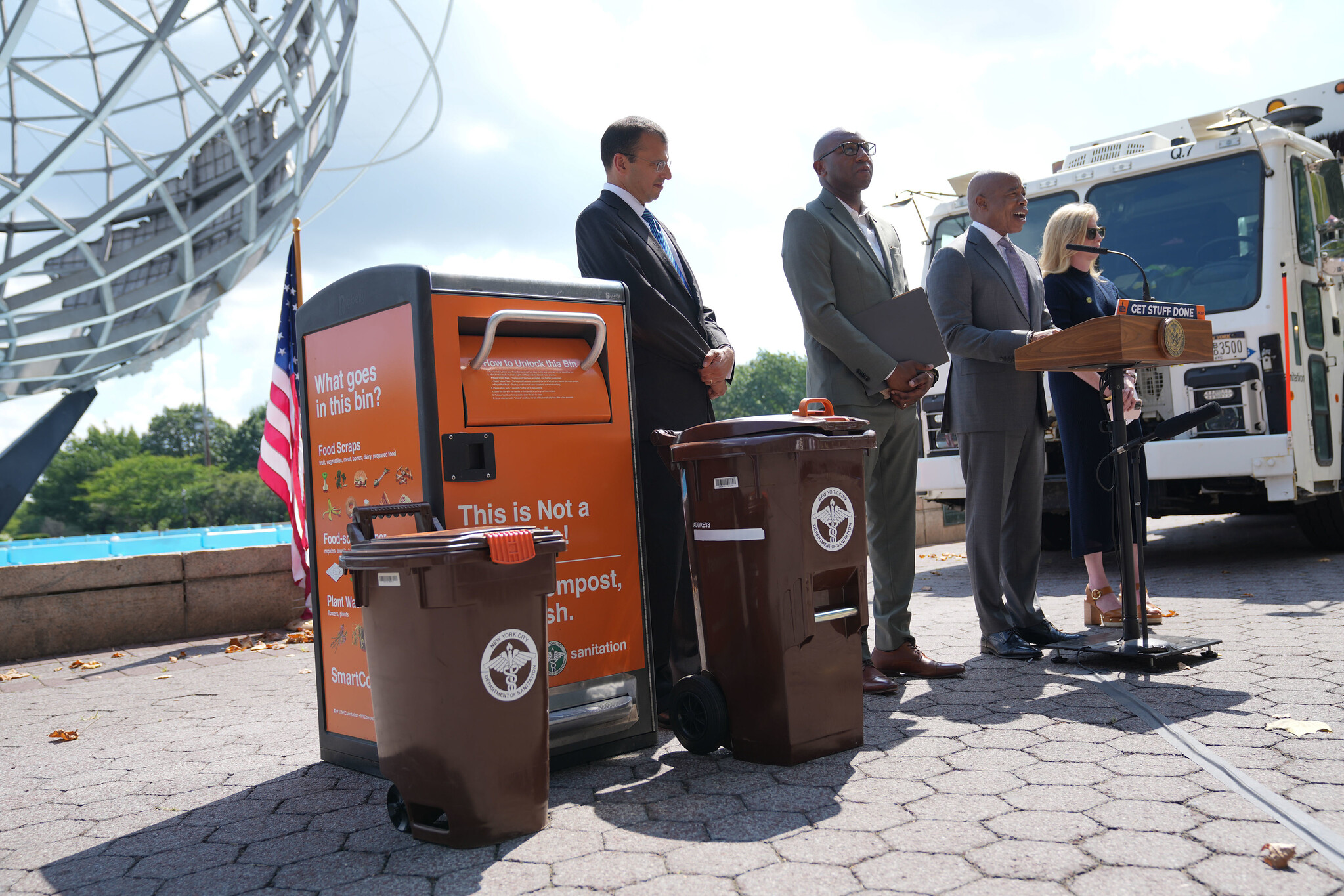They're going to need a lot of bigger boats.
The Department of Sanitation will have to spend around $75 million to buy roughly 170 trucks if it has any chance of growing the Queens universal curbside organics collection into a robust citywide program, Commissioner Jessica Tisch told the Council last week.
But Mayor Adams hasn't budgeted any expansion for the pilot program that has collected compostable organics and yard waste from every Queens address since October — even though early data shows it already outpaced its opt-in predecessor. Lawmakers are pushing Hizzoner to fund the five-borough effort.
DSNY currently deploys 110 of its so-called dual-bin collection trucks for the Queens organics program that rolled out on Oct. 3, and they would have to add another 112 of those heavy haulers along with around 56 of its more common single, rear-loader trucks to cover all corners of the city, Tisch said during a Council hearing on Wednesday.
That's on top of New York's Strongest current stable 602 dual-bin loaders and 2,100 rear loaders, out of a total fleet of some 6,000 units.
"We would use those dual-bin trucks particularly in lower density parts of Brooklyn, Staten Island, and the Bronx where the hybrid collection model really works," said Tisch. "We would also need additional rear loaders because not every route could accommodate a dual-bin truck."
The dual-bin trucks cost around $450,000 each, meaning the total bill for adding 112 new ones would be a little over $50 million, and Tisch estimated it would be another $25 million for the new rear loaders to join the nearly $1.9-billion-a-year agency.
The agency is still working to fill a backlog cycling out old trucks of its existing fleet that officials stopped replacing during the pandemic, and DSNY is trying to get a new contractor by January to buy the trucks from after an old contract lapsed, Tisch said.
The Queens composting program has proven to be far more effective than the old initiative under former Mayor Bill de Blasio, where households had to opt into the service.
Queens neighborhoods have far outpaced those in the seven parts of Brooklyn, Manhattan, and the Bronx that were eligible for the opt-in program, according to DSNY data, confirming a trend Streetsblog first reported on last month.
The World's Borough logged the top eight community districts by weight of organics collected from Oct. 3-Nov. 12, beating out Brooklyn Community Board 6 covering Park Slope, Carroll Gardens, and Red Hook, which have had the opt-in service for a decade.
At the top was Queens Community Board 12 in Jamaica and St. Albans, low-rise neighborhoods with many back yards and likely a lot of leaf waste to boost their numbers. The area had never received DSNY's curbside organics collection before and diverted more than one million pounds over the six weeks.

DSNY boasted that the Queens program diverted a total of 5.7 million pounds during that time, however that’s still just a small fraction of the roughly 2.2 million pounds of organics borough residents throw away each day.
Organics make up about one-third of the city's waste stream, and if they're not diverted they end up in landfills and decompose, emitting the harmful greenhouse gas methane.
Other cities out West like Seattle and San Francisco have had a working compost collection program for years, but New York City has struggled to establish a successful diversion of food and yard waste since the Bloomberg administration.
As a result of they initial success of the Queens effort, other parts of the city want a piece of the organics pie.
Manhattan Borough President Mark Levine and nine other local pols last week wrote to Tisch asking for universal curbside collection in their borough, Gothamist reported.
Manhattan currently has the opt-in program in two community boards — CBs6 and 7 — that comprise predominantly wealthy neighborhoods such as the Upper West Side and Murray Hill.
Meanwhile, a bill in the Council from back in April with a veto-proof majority would mandate a citywide program, but the proposed law has stalled without coming up for a vote, and an expansion might become part of the city budget negotiations early next year.
The Council’s Sanitation Committee Chairperson Sandy Nurse (D-Bushwick) told Streetsblog that the Mayor should invest the money needed for a citywide program.
“In the upcoming budget cycle we need to ensure that the full funding for a full citywide program is available so that it can phase in,” Nurse said.
City Hall spokesperson Kate Smart said Mayor Adams is looking at how the city can make composting accessible citywide.
"We've seen exciting early success with the DSNY Queens composting program, the largest curbside composting program in the country, and we are looking closely at what we can learn from this and how we can make composting accessible to everyone," said Smart.






